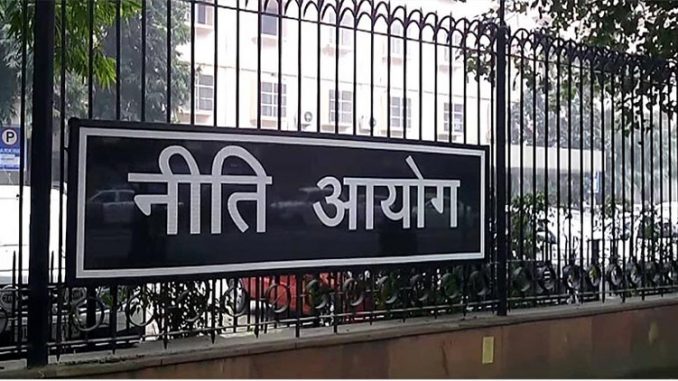
By Yogima Sharma
NEW DELHI: At a time when the government is celebrating India’s significant jump in the ease of doing business ranking, its policy making body Niti Aayog has shifted focus towards social sectors, and will come out with a first-of-its kind ranking of states on parameters such as health, education and water management by December-end to help India leapfrog even in the Human Development Index (HDI).
Raising the bar on these parameters will compel states to compete and eventually help the country transform into a global economic force and ensure better HDI performance where it was ranked at a dismal 131 position in 2015 out of 188 countries, reckons the Aayog.
States have been uploading data on the Aayog’s portal which is being verified by an independent third party agency following which the first ranking will be made public. The change in the index from the base year to a reference year,and in each subsequent year, will be the measure of incremental improvement of each state relative to its own baseline performance.
The Aayog has identified seven states and 200 districts which are at the bottom of the pyramid and is of the view that unless social indices in these laggard states improve, India can in no way hit the higher growth trajectory of 9-10%, Niti Aayog CEO Amitabh Kant told ET.
The Aayog, along with states, will soon undertake a holistic approach towards helping them improve certain important social indices by setting up a program management unit for a period of 30 months to push for efficiency and efficacy in governance structures and service delivery.
The Aayog is of the view that three years of focused attention and support from the Centre will lead to a marked transformation and provide a model for other states to replicate and adapt.
The shortlisted states for the health sector include Uttar Pradesh, Assam and Karnataka while Madhya Pradesh, Jharkhand and Odisha will be hand-held by the Aayog for transforming their education sector. While the health index will rank states on the basis of their performance on ‘measurable’ indicators such as infant mortality rate, sex ratio at birth and functional 24×7 public health centres, the education index or the School Education Quality Index (SEQI) will assess and rank states based on 34 indicators across five domains including learning outcomes, access outcomes, equity outcomes, governance process and structural reforms undertaken by the states.
The Composite Water Management Index will help to assess and further improve the performance in efficient management of water resources by putting pressure on states to kick-start the practice of making water usage chargeable, thus curbing wastage. It is expected that these social sector indices will assist in statelevel monitoring of performance, serve as an input for providing performance based incentives and improvement in sectoral outcomes.
Source: Economic Times

Leave a Reply